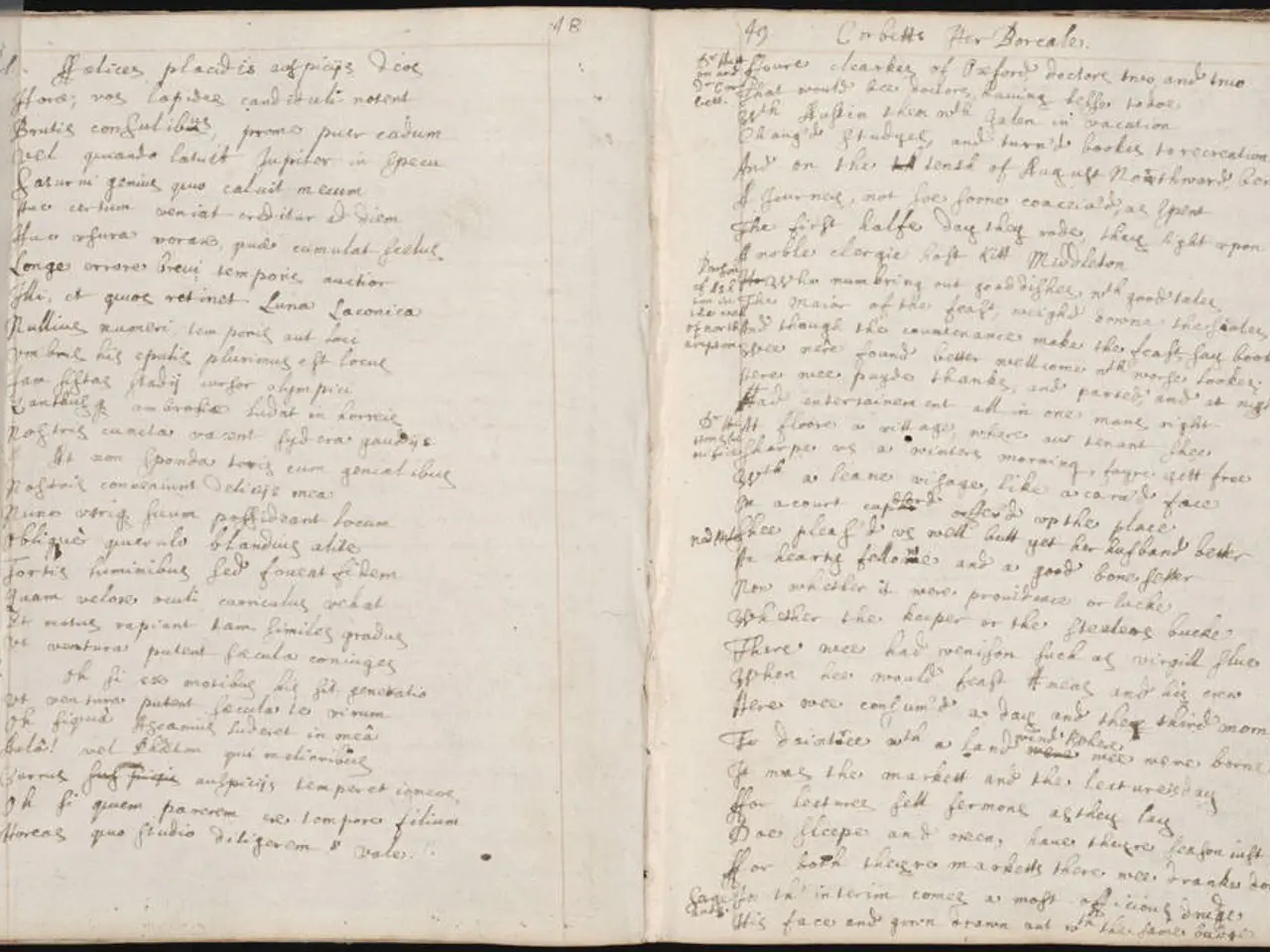Under Investigation: Scribbles of Uncertainty
In the ever-evolving world of literature, a new narrative is unfolding. The landscape of writing has been significantly altered by the advent of artificial intelligence (AI), and this transformation is being felt by writers across the globe.
Some writers are steering clear of the ellipsis, a punctuation mark, due to a rumour that AI-generated texts can be identified by its usage. This avoidance is a testament to the changing times, where proving one's ability is less important than demonstrating seriousness.
The craft of writing itself has taken a backseat to contextual understanding, self-reflection, and critical evaluation of sources. This shift is particularly apparent in the works of 'BookTok authors', whose output would be nearly incomprehensible without AI.
Yet, the story of 'pure' writing persists, not just to justify oneself to others, but also to oneself. Authors like John Green, Sarah J. Maas, and Neil Gaiman continue to be celebrated, their works romanticized in TikTok videos that suggest authorship remains relevant despite rapid changes.
However, suspicion has become the default mindset, making it difficult to dispel the doubts about AI-generated texts. There are no clear criteria for when a text is considered AI-generated, and this ambiguity adds to the mystery.
To combat this, books are now accompanied by disclaimers stating "Human Authored". Yet, AI has permeated all writers, whether they use it intentionally or not. When AI is discussed, it's often in a defensive manner, with writers claiming they only use AI for specific tasks like world-building, research, or improving sentence structure.
This defensive posture is an expression of a new experience for authors compared to curators or directors. Some writers have evolved into meta-authors, text curators, orchestrating AI outputs into their narratives. The boundaries between planning, writing, and editing have blurred for these writers.
The videos discussing writing often attempt to make writing visible due to its rapid change. AI detectors are being developed and deployed in publishing houses and universities, aiming to bring clarity to this murky landscape.
The partly desperate aestheticization of writing is a signal that writing requires more responsibility. Those who reject AI cannot write outside the AI discourse, while AI users do not need to establish transparency, but self-writing individuals must increasingly prove their texts are human-made.
In this new era of writing, the voice is both one's own and another's, creating a unique state of being responsible yet not fully responsible. The narrative of 'pure' writing is repeated in these videos, but the practice has long since changed, with many texts now emerging in a hybrid manner.
This evolution of writing is a testament to the resilience of the human spirit, our ability to adapt, and our unwavering commitment to storytelling. As we navigate this new landscape, it's essential to remember that the essence of writing - the ability to connect, to inspire, and to transport - remains unchanged.








